Navigating the complexities of international shipping can be a daunting task, especially when importing goods from China to South Korea. Understanding the intricacies of freight forwarding services is essential for businesses looking to streamline their logistics and ensure timely deliveries. From choosing the right shipping method—be it air freight or sea freight—to managing customs clearance and documentation, this comprehensive guide will equip you with the knowledge you need to make informed decisions. Discover the key factors to consider when selecting a freight forwarder, explore various shipping options, and learn how to overcome common challenges in the freight forwarding process. Whether you’re a seasoned importer or new to international trade, this guide provides valuable insights to help you navigate the logistics landscape effectively.
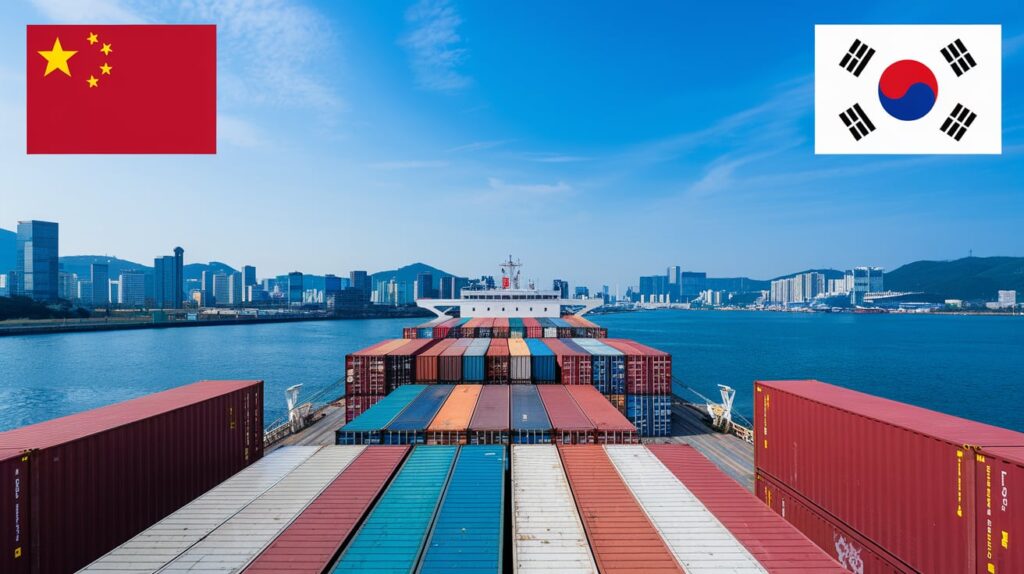
Understanding Freight Forwarding Services
A freight forwarder acts as an intermediary between shippers and transportation services, providing expertise in logistics management. In essence, freight forwarders streamline the shipping process by coordinating the movement of goods on behalf of importers and exporters. They handle various logistical tasks, including documentation, customs clearance, and the arrangement of transportation modes, ensuring that cargo is delivered efficiently and cost-effectively.
Key Responsibilities and Services Offered
Freight forwarders offer a wide range of services that cater to the specific needs of businesses involved in international trade. Key responsibilities include:
- Transportation Management: Coordinating various transportation modes (air, sea, rail, and road) to deliver goods from origin to destination.
- Documentation and Compliance: Handling necessary paperwork, including bills of lading, commercial invoices, and customs declarations.
- Customs Clearance: Ensuring compliance with import/export regulations and facilitating smooth customs processes to prevent delays.
- Warehousing and Distribution: Providing storage solutions and managing inventory to optimize supply chain efficiency.
- Insurance Services: Offering cargo insurance options to protect goods against loss or damage during transit.
- Consultation and Support: Advising clients on shipping options, routing, and best practices to streamline operations.
Shipping Options from China to South Korea
When considering shipping options from China to South Korea, businesses must evaluate various logistics strategies tailored to their cargo needs. The two primary shipping methods are air freight and sea freight, each offering distinct advantages depending on urgency, cost, and volume.
Air Freight
Transit Times and Costs
Air freight is recognized for its speed and reliability, making it the preferred choice for urgent deliveries. Typical transit times for air shipments from China to South Korea range from 1 to 3 days, depending on the specific route and airline. Although air freight is generally more expensive than sea freight, it provides businesses with the ability to get their products to market quickly.
| Shipping Method | Transit Time | Estimated Cost (per kg) |
|---|---|---|
| Air Freight | 1 – 3 days | $5 – $10 |
Major Airports and Airlines
Key airports involved in air freight between China and South Korea include:
- Incheon International Airport (ICN): The primary airport serving Seoul, known for its advanced facilities and international connections.
- Shanghai Pudong International Airport (PVG): A major hub for international air cargo in China.
- Guangzhou Baiyun International Airport (CAN): Servicing the southern region of China with extensive flight options to South Korea.
Prominent airlines offering air freight services on this route include Korean Air, China Southern Airlines, and Cathay Pacific.
Sea Freight
FCL (Full Container Load) vs. LCL (Less than Container Load)
When opting for sea freight, businesses can choose between Full Container Load (FCL) and Less than Container Load (LCL) shipping:
- FCL: Ideal for larger shipments, FCL allows businesses to utilize an entire container for their cargo, leading to lower costs per unit. This method is often faster as it avoids the consolidation process necessary for LCL shipments.
- LCL: Suitable for smaller shipments, LCL consolidates cargo from multiple clients into one container. While this method can be more economical for smaller shipments, it may involve longer transit times due to additional handling and consolidation.
| Shipping Method | FCL (Typical Cost) | LCL (Typical Cost) | Transit Time |
|---|---|---|---|
| Sea Freight | $1,500 – $3,000 | $100 – $500 per m³ | 7 – 14 days |
Main Ports and Shipping Routes
The primary ports for sea freight between China and South Korea include:
- Shanghai Port: The largest port in China, providing various shipping routes to South Korea.
- Ningbo Port: Another significant port, known for its efficient operations and proximity to manufacturing hubs.
- Busan Port: The key port in South Korea, receiving the majority of cargo shipments from China.
Optimal shipping routes are determined by factors such as cargo size, shipping schedules, and cost considerations.
Express Shipping for Urgent Cargo
For businesses requiring immediate shipment of goods, express shipping services are available through both air and sea freight. Express shipping guarantees expedited processing and delivery, often within 24 to 48 hours, depending on the selected carrier and service option. This method is particularly advantageous for time-sensitive shipments, ensuring that critical inventory reaches its destination without delay.
In summary, for businesses engaged in importing goods from China, working with a proficient freight forwarder such as Dantful International Logistics is essential. With their expertise in international logistics, Dantful provides door-to-door shipping services, customs clearance, and warehouse services, ensuring a seamless shipping experience. Reach out to Dantful for insightful guidance on your shipping needs and to explore their wide range of freight forwarding services.
You may be interested in the following related articles:
- Shipping From China To Sri Lanka
- Shipping From China To India
- Shipping From China To Kyrgyzstan
- Shipping From China To Turkmenistan
- Shipping From China To Vietnam
- Shipping From China To Thailand
- Shipping From China To Singapore
- Shipping From China To Philipines
- Shipping From China To Pakistan
- Shipping From China To Malaysia
- Shipping From China To Japan
Factors to Consider When Choosing a Freight Forwarder
Selecting the right freight forwarder for shipping goods from China to South Korea is a critical decision that can significantly impact your business operations. Here are key factors to consider during the selection process:
Experience and Expertise in China-South Korea Trade
A freight forwarder with a solid track record in China-South Korea trade brings valuable insights into market dynamics, regulatory requirements, and logistics challenges specific to this route. Their experience helps mitigate risks associated with customs regulations and transit delays, ensuring smoother operations.
Range of Services Offered
Evaluate the variety of services a freight forwarder offers. Beyond basic shipping, look for comprehensive solutions such as:
- Customs clearance
- Door-to-door shipping services
- Insurance options
- Warehouse services
- Express shipping options
A forwarder that provides a one-stop solution can simplify logistics and enhance operational efficiency.
Network and Partnerships in Both Countries
A robust network of partnerships with carriers, customs brokers, and local agents in both China and South Korea is essential. This connectivity ensures access to reliable shipping routes and services, offering flexibility and speed in your logistics operations.
Pricing and Cost Transparency
Cost is a significant factor when selecting a freight forwarder. Ensure that the forwarder provides transparent pricing models without hidden fees. Request detailed quotes that break down all costs associated with shipping, including handling, customs, and insurance fees. This transparency helps in budgeting and avoiding unexpected expenses.
Communication and Customer Service
Effective communication is crucial for successful logistics management. A freight forwarder should be responsive and proactive in addressing your inquiries. Assess their customer service capabilities, including how they handle issues that may arise during transit. A forwarder with strong customer service can provide peace of mind and foster a successful partnership.
Technology and Tracking Capabilities
In today’s digital age, technology plays a vital role in logistics. A good freight forwarder should offer advanced tracking capabilities, allowing you to monitor your cargo in real-time. This visibility helps you manage inventory and provides updates throughout the shipping process.
Customs Clearance Expertise
Navigating customs regulations can be complex, particularly when dealing with international shipments. A forwarder with strong expertise in customs clearance ensures compliance with all regulations, handles necessary documentation, and minimizes the risk of delays or penalties. This expertise is crucial for smooth and timely delivery.
Insurance Options
Assess the insurance options provided by the freight forwarder. Cargo insurance is essential for protecting your goods against loss or damage during transit. A reputable freight forwarder should offer various insurance solutions to meet your needs and provide peace of mind regarding your shipment.
Steps to Select the Right Freight Forwarder from China to South Korea
Choosing the right freight forwarder involves a structured approach that considers your specific requirements and evaluates potential partners. Follow these steps to make an informed decision:
Assess Your Specific Shipping Needs
Begin by identifying your unique shipping requirements, including:
- The volume and nature of the goods being shipped
- Desired shipping timelines
- Budget constraints
- Required services (e.g., customs clearance, warehouse services)
This assessment helps narrow down your options and align them with your logistics objectives.
Research Potential Forwarders
Conduct thorough research on potential freight forwarders. Utilize online resources, industry forums, and trade groups to identify reputable companies that specialize in shipping from China to South Korea. Additionally, review their credentials, such as licenses and industry certifications, to ensure legitimacy.
Request and Compare Quotes
Reach out to multiple freight forwarders to request quotes based on your specific shipping needs. When comparing quotes, consider not only the price but also the quality and range of services offered. A detailed cost breakdown will allow you to evaluate which forwarder provides the best value for your requirements.
Check References and Reviews
Seek references from other businesses that have worked with your potential forwarders. Check online reviews and testimonials to gauge the experiences of previous clients. Positive feedback regarding reliability, communication, and customer service can provide confidence in your choice.
Evaluate Communication and Responsiveness
Assess how quickly and effectively potential forwarders communicate during the inquiry stage. A forwarder that responds promptly and addresses your questions with clarity demonstrates a commitment to customer service. This quality is essential for managing potential issues smoothly throughout the shipping process.
Consider a Trial Shipment
If possible, consider conducting a trial shipment with your chosen freight forwarder. This step allows you to evaluate their operational capabilities, reliability, and overall service quality without committing to a long-term contract. A trial shipment can provide valuable insights into how the forwarder manages logistics and customer relations.
By carefully considering these factors and following the outlined steps, you can effectively select a freight forwarder that aligns with your business needs. For those looking to simplify their logistics needs for shipping from China to South Korea, Dantful International Logistics offers a comprehensive range of services designed to facilitate smooth and efficient shipping.
Common Challenges and How to Avoid Them
Freight forwarding is fraught with challenges that can disrupt the shipping process and impact business operations. Understanding these challenges and implementing strategies to mitigate them is essential for smooth logistics management. Here are some common challenges faced in freight forwarding and ways to avoid them:
Customs Delays and Documentation Issues
One of the most significant challenges in international shipping is navigating customs regulations. Delays can occur due to incomplete or incorrect documentation, leading to prolonged customs clearance times.
How to Avoid:
- Thorough Documentation: Ensure that all required documents are accurately prepared and submitted. This includes commercial invoices, packing lists, bills of lading, and any necessary import/export permits.
- Expert Guidance: Partner with a freight forwarder that specializes in customs clearance and has a strong understanding of regulations in both China and South Korea.
- Pre-Shipping Compliance Checks: Conduct compliance checks before shipping to ensure that all documentation aligns with the requirements of the destination country.
Hidden Costs and Fees
Unexpected costs can erode profit margins and complicate budgeting. Hidden fees can arise from various sources, including customs duties, handling charges, and additional services that were not clearly outlined in the initial quote.
How to Avoid:
- Transparent Pricing: Work with a freight forwarder that provides a detailed breakdown of all costs associated with your shipment, including potential extra fees.
- Clarify Terms Before Agreement: Before signing contracts, clarify any ambiguous terms related to costs and ensure that all potential charges are discussed.
- Regular Communication: Maintain open lines of communication with your forwarder throughout the shipping process to stay informed of any changes in pricing.
Cargo Damage or Loss
Cargo damage or loss can result from various factors, including improper handling, insufficient packaging, or unforeseen accidents during transit. Such incidents can lead to significant financial losses and disrupt supply chains.
How to Avoid:
- Quality Packaging: Invest in high-quality packaging materials and methods that are appropriate for the type of goods being shipped. This includes using protective materials and appropriate labeling.
- Insurance Coverage: Ensure that you have adequate cargo insurance to protect against loss or damage during transit. A reputable freight forwarder should offer insurance options tailored to your needs.
- Choose Reliable Carriers: Work with carriers that have a proven track record of safe handling and delivery to reduce the risk of incidents during transit.
Communication Barriers
Communication barriers can arise due to language differences, time zone challenges, or unclear expectations. Poor communication can lead to misunderstandings and delays in the shipping process.
How to Avoid:
- Select a Bilingual Forwarder: Choose a freight forwarder that provides bilingual support to bridge any language gaps, facilitating clearer communication.
- Establish Clear Channels: Define clear communication channels and protocols, ensuring that all parties understand the preferred methods and times for correspondence.
- Regular Updates and Check-Ins: Schedule regular updates and check-ins to address any concerns promptly and keep all stakeholders informed throughout the shipping process.
Tips for a Successful Partnership with Your Freight Forwarder
Building a successful partnership with your freight forwarder is crucial for optimizing logistics and ensuring smooth operations. Here are key tips to foster a strong working relationship:
Clear Communication of Expectations
Establishing clear expectations from the outset is essential for a successful partnership. Define project goals, deadlines, and service requirements to minimize misunderstandings.
Tips:
- Set Specific Goals: Clearly outline what you expect from your freight forwarder in terms of service quality, communication frequency, and delivery timelines.
- Provide Complete Information: Share all necessary information related to your products, shipping needs, and any special requirements to ensure that your forwarder can deliver effectively.
Regular Performance Reviews
Conducting regular performance reviews helps assess the effectiveness of your freight forwarder and identify areas for improvement. This practice fosters accountability and drives continuous improvement.
Tips:
- Establish Key Performance Indicators (KPIs): Define measurable KPIs, such as on-time delivery rates, accuracy of documentation, and responsiveness, to evaluate performance.
- Schedule Review Meetings: Hold regular meetings to discuss performance, address any concerns, and collaboratively develop solutions to any challenges.
Building a Long-Term Relationship
A long-term partnership with your freight forwarder can lead to enhanced service quality and more favorable pricing. Establishing trust and collaboration can yield significant benefits for both parties.
Tips:
- Invest Time in Relationship Building: Take the time to understand your forwarder’s operations and challenges. A collaborative relationship can lead to better service and more effective problem-solving.
- Mutual Support: Offer constructive feedback and recognize the efforts of your freight forwarder. A reciprocal relationship fosters loyalty and encourages a commitment to service excellence.
By anticipating common challenges and implementing best practices for partnership management, businesses can optimize their freight forwarding operations between China and South Korea. Engaging with a reputable freight forwarder such as Dantful International Logistics can further enhance the efficiency and reliability of your shipping processes, ensuring a seamless logistics experience.

Young Chiu is a seasoned logistics expert with over 15 years of experience in international freight forwarding and supply chain management. As CEO of Dantful International Logistics, Young is dedicated to providing valuable insights and practical advice to businesses navigating the complexities of global shipping.






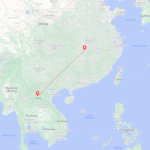




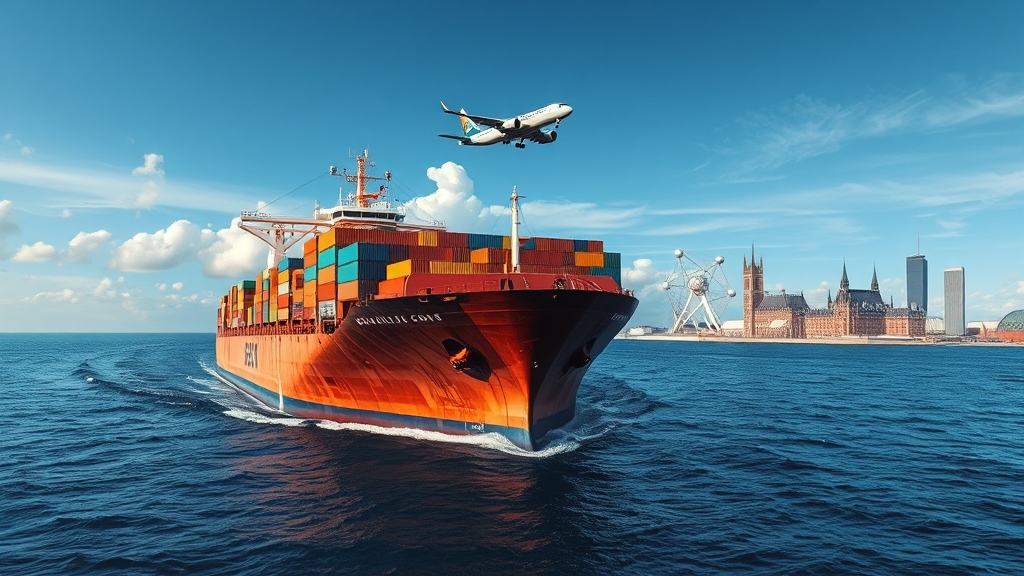
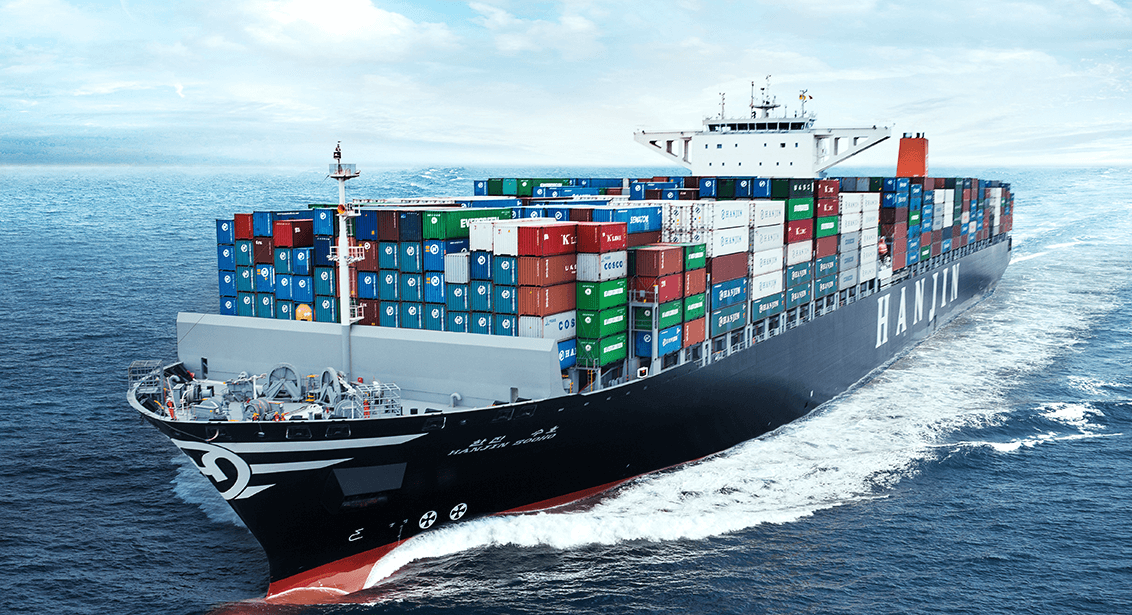
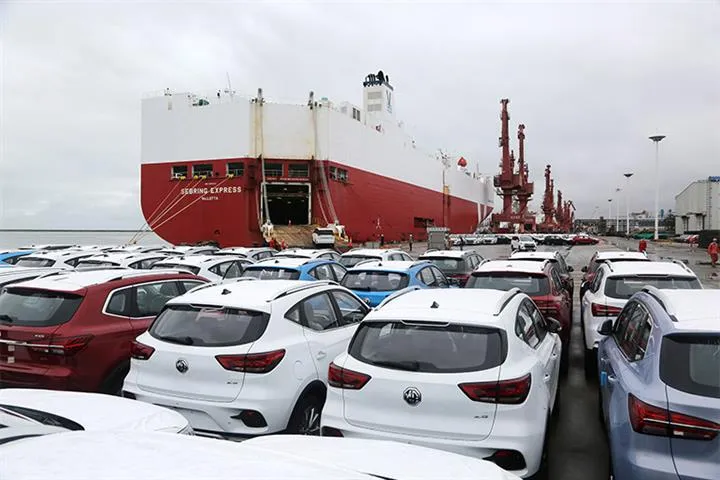

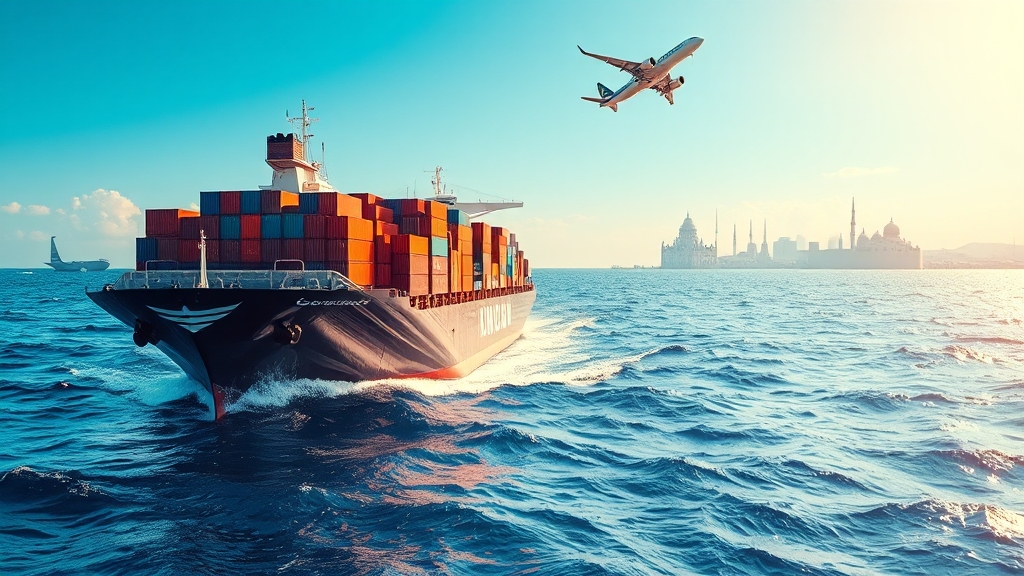





 Afrikaans
Afrikaans Shqip
Shqip አማርኛ
አማርኛ العربية
العربية Հայերեն
Հայերեն Azərbaycan dili
Azərbaycan dili Euskara
Euskara Беларуская мова
Беларуская мова বাংলা
বাংলা Bosanski
Bosanski Български
Български Català
Català Cebuano
Cebuano Chichewa
Chichewa 简体中文
简体中文 繁體中文
繁體中文 Corsu
Corsu Hrvatski
Hrvatski Čeština
Čeština Dansk
Dansk Nederlands
Nederlands English
English Esperanto
Esperanto Eesti
Eesti Filipino
Filipino Suomi
Suomi Français
Français Galego
Galego ქართული
ქართული Deutsch
Deutsch Ελληνικά
Ελληνικά Kreyol ayisyen
Kreyol ayisyen Harshen Hausa
Harshen Hausa Ōlelo Hawaiʻi
Ōlelo Hawaiʻi עִבְרִית
עִבְרִית हिन्दी
हिन्दी Hmong
Hmong Magyar
Magyar Íslenska
Íslenska Igbo
Igbo Bahasa Indonesia
Bahasa Indonesia Gaeilge
Gaeilge Italiano
Italiano 日本語
日本語 Basa Jawa
Basa Jawa ಕನ್ನಡ
ಕನ್ನಡ Қазақ тілі
Қазақ тілі ភាសាខ្មែរ
ភាសាខ្មែរ 한국어
한국어 كوردی
كوردی Кыргызча
Кыргызча ພາສາລາວ
ພາສາລາວ Latin
Latin Latviešu valoda
Latviešu valoda Lietuvių kalba
Lietuvių kalba Lëtzebuergesch
Lëtzebuergesch Македонски јазик
Македонски јазик Malagasy
Malagasy Bahasa Melayu
Bahasa Melayu മലയാളം
മലയാളം Maltese
Maltese Te Reo Māori
Te Reo Māori मराठी
मराठी Монгол
Монгол ဗမာစာ
ဗမာစာ नेपाली
नेपाली Norsk bokmål
Norsk bokmål پښتو
پښتو فارسی
فارسی Polski
Polski Português
Português ਪੰਜਾਬੀ
ਪੰਜਾਬੀ Română
Română Русский
Русский Samoan
Samoan Gàidhlig
Gàidhlig Српски језик
Српски језик Sesotho
Sesotho Shona
Shona سنڌي
سنڌي සිංහල
සිංහල Slovenčina
Slovenčina Slovenščina
Slovenščina Afsoomaali
Afsoomaali Español
Español Basa Sunda
Basa Sunda Kiswahili
Kiswahili Svenska
Svenska Тоҷикӣ
Тоҷикӣ தமிழ்
தமிழ் తెలుగు
తెలుగు ไทย
ไทย Türkçe
Türkçe Українська
Українська اردو
اردو O‘zbekcha
O‘zbekcha Tiếng Việt
Tiếng Việt Cymraeg
Cymraeg יידיש
יידיש Yorùbá
Yorùbá Zulu
Zulu